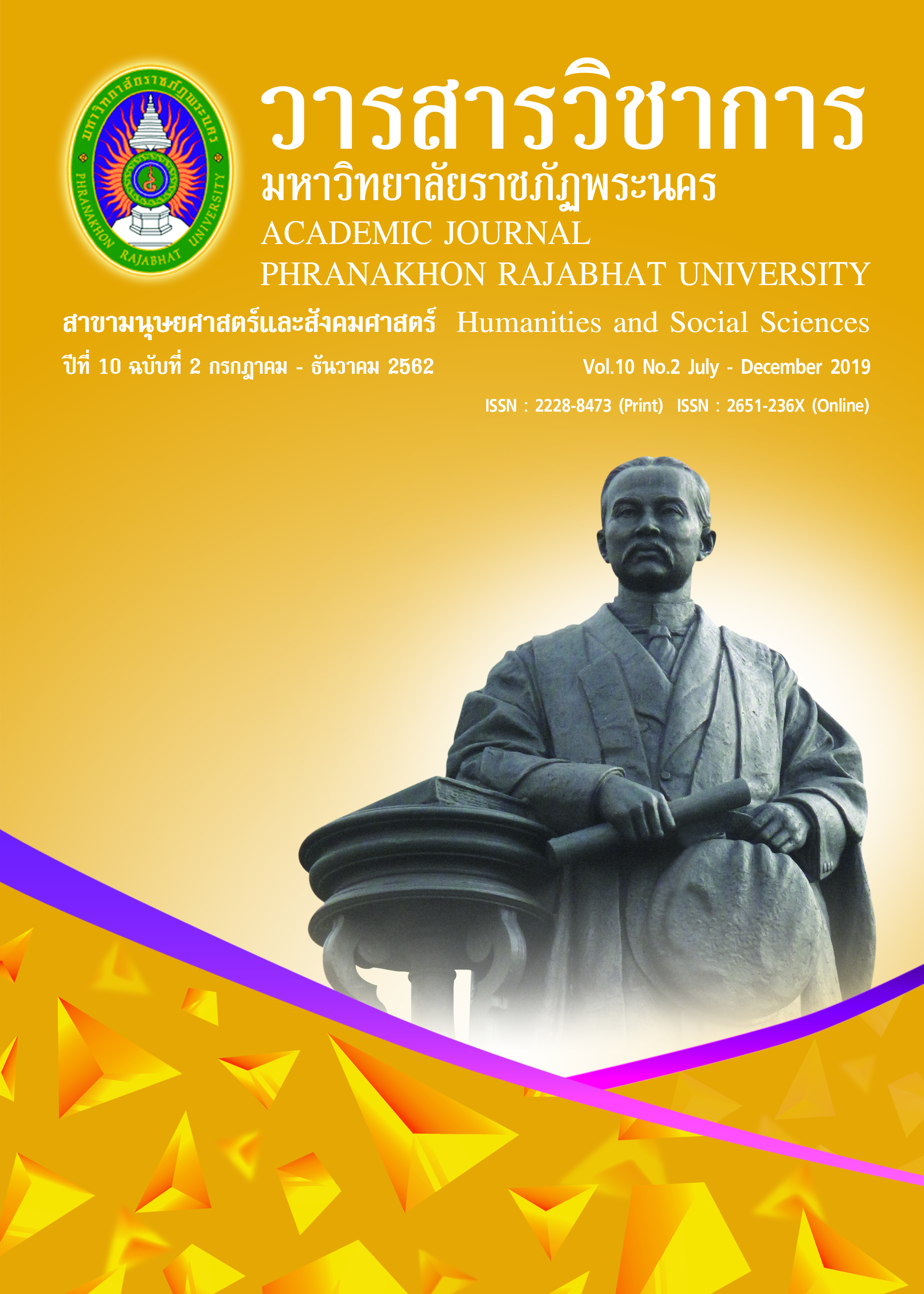THE PRIORITY NEEDS OF WATSONGTHAM SCHOOL MANAGEMENT BASED ON THE CONCEPT OF INNOVATION ORGANIZATION
Keywords:
Priority Needs, School Management, Innovation OrganizationAbstract
The purpose of this research was to study the priority needs of Watsongtham School management based on the concept of innovation organization. The study population was Watsongtham school Samut Prakarn Province under the Office of Secondary Education Service Area 6. The research informants consisted of a School Director, four Vice Directors of School and 83 teachers. The total of this research were 88 informants. The research instrument used in this study was a 5 level rating scaled questionnaire. The returned questionnaires from 88 sampling were 100%. The data was analyzed by frequency distribution, percentage, mean, standard deviation, and Modified Priority Needs Index (PNIModified). The research found that: The priority needs of Watsongtham school management based on the concept of innovation organization. The priority needs of Watsongtham school management sorted from highest to lowest were as follows: 3) Check (PNIModified=0.342).The highest element of priority need was Technology (PNIModified=0.377) and the lowest element of priority need was Administrative Structure (PNIModified=0.315); 2) Do (PNIModified=0.333). The highest element of priority need was Technology (PNIModified=0.364) and the lowest element of priority need was Administrative Structure (PNIModified=0.291); 1) Plan (PNIModified=0.330) The highest element of priority need was Collaboration Network (PNIModified=0.390) and the lowest element of priority need was Administrative Structure (PNIModified=0.279) and 4) Act
(PNIModified=0.329) The highest element of priority need was Technology (PNIModified=0.359) and
the lowest element of priority need was Organizational Culture (PNIModified=0.301), respectively.
References
Chaemchoy, S. (2012). Concept of Innovation for School Management in the 21st Century. Journal of Education Naresuan University. 14(2), 117-128. (in Thai)
Chaemchoy, S. (2018). School Management in Digital Era. Bangkok: Chulalongkorn University Press. (in Thai)
Dacharin, P. (2003). Balanced Scorecard: Implementing balanced scorecard. 2nd Edition. Bangkok: Chulalongkorn University Printing House. (in Thai)
Deming, W.E. (1993). PDCA cycle a quality approach. Cambridge: MA MIT.
Higgins, James M. (1995). Innovate or Evaporate: Test & Improve Your Organization’s IQ–Its Innovation Quotient. New York: New Management Publishing Company.
Keesookpun, E. (2011). Management skills and Practices. 4th Edition. Bangkok: Sukkapabjai Group. (in Thai)
Lapcharoen, S., Wichitputcharaporn, W. & Niyamapa, A. (2018). Administrative Factors that Affecting Learning Organization of The Demonstration School of Ramkhamhaeng University. Educational Management and Innovation Journal (EMI Journal). 1(1), 81-98. (in Thai)
Ministry of Education. (2010. National Education Act B.E. 2542 (1999) and Amendments (Second National Education
Act B.E. 2545 (2002)). Bangkok: Kurusapa Printing Ladphrao.
Phungtoneng, K. (2012). A Study of the State of School Administration of the Leading Moral Schools Under the Office of the Basic Education Commission in the Eastern Region. Degree of Master of Education Program in Educational Administration. Faculty of Education, Chulalongkorn University. (in Thai)
Prajankett, O. (2014). An educational innovative organization: A new choice of educational administration. Journal of The Royal Thai Army Nurses. 15(1), 45-51. (in Thai)
Srisa-ard, B. (2013). Introduction to Research. 9th Edition. Bangkok: Suweeriyasan. (in Thai)
Thongwan, K. (2010). The Relationship of Influencing Factors which Created the Learning Organization and an Innovative Organization: Case Study at the National Science and Technology Development Agency. Journal of Business Administration (Thammasat Business Journal). 33(128), 34-48. (in Thai)
Tidd, J., Bessant, J. & Pavitt, K. (2001). Managing Innovation Integrating Technological And Organization Change. Chichester: John Wiley & Sons.
Von Stamm, B. (2008). Managing Innovation, Design and Creativity. Chichester: John Willey & Sons.
Vrakking, W.J. (1990). The Innovative Organization. Long Range Planning, 23(2), 94-102.
Watsongtham School. (2016). Self Assessment Report of Watsongtham School. Samut Prakarn Province: Under the Office of Secondary Education Service Area 6. (in Thai)
Wongwanich, S. (2015). A Needs Assessment Research. 3rd Edition. Bangkok: Chulalongkorn University Printing House. (in Thai)
Yossyingyong, K. (2018). Innovative Organization: Concept & Process. Bangkok: Chulalongkorn University Printing House. (in Thai)
Downloads
Published
How to Cite
Issue
Section
License
"บทความวิชาการในวารสารฉบับนี้ ถือเป็นความรับผิดชอบของผู้เขียนเท่านั้น"
สงวนลิขสิทธิ์ตามพระราชบัญญัติลิขสิทธิ์




